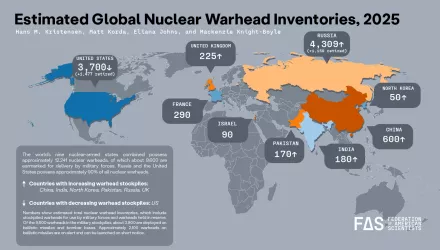The public reconciliation of Presidents Bush and Putin in St. Petersburg and at the G-8 Summit in Evian has fostered the impression that all is well in the U.S.-Russian relationship. This is a dangerous misimpression. The U.S.- Russian dispute over Iraq exposed conflicts in the U.S.-Russian relationship and even cracks in its foundation that must be addressed to advance vital American interests. The tragic attacks on the World Trade Center and the Pentagon rapidly crystallized American thinking about the interrelated threats of terrorism and proliferation. Containing these threats has become the principal aim of U.S. foreign policy. Today’s Russia can play a major role in advancing this aim— or in undermining it. The combination of Russia’s size and strategic location; its relationships with, intelligence about and access to key countries; its arsenal of nuclear and other weapons and technologies; its enormous energy resources; and its ability to facilitate or block action by the United Nations Security Council places Moscow among America’s most important potential partners. Fortunately, the interests America and Russia share greatly outweigh the interests that divide us. Nevertheless, even before the dispute over Iraq, lingering resentment on both sides was undermining the relationship. Russian opposition to one of the most significant American foreign policy initiatives of the last decade raised further questions and must be correctly understood not simply to avoid further problems, but also to get the most out of the U.S.-Russian relationship. Many Russians now believe that Moscow’s opposition to U.S. policy toward Iraq was a strategic blunder. It also reflects shortcomings in America’s approach, however, including the delay in deepening the U.S.-Russian relationship, the concomitant absence of equities that would have encouraged Moscow to accommodate U.S. preferences, and the undisciplined pursuit of contradictory policies. Moving forward requires that Russian officials understand that the United States has been making a special effort to develop bilateral relations and that obstructionist conduct on key U.S. priorities is not cost-free. It also requires a review of the U.S.-Russian relationship and the development of more reliable means to advance American interests within it and through it.
Allison, Graham. “Advancing American Interests and the U.S.-Russian Relationship.” Commission on America's National Interests, September 1, 2003




